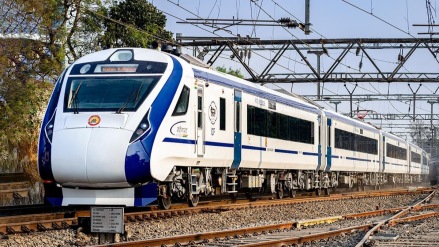The Lok Sabha on Wednesday (December 11) passed the Railways (Amendment) Bill 2024, which seeks to amend existing railway laws to enhance the functioning and independence of the Railway Board. The Bill was passed by a voice vote after a prolonged debate in the Lower House, with the government assuring that it does not signal the privatisation of the national carrier.
Government Dispels Privatisation Fears
Responding to concerns raised during the debate, Railway Minister Ashwini Vaishnaw categorically denied claims that the amendment would lead to privatisation. He accused the opposition of creating a “fake narrative” on the issue, asserting that the amendment is aimed solely at improving the operational efficiency of Indian Railways.
“Their (opposition) fake narrative on the Constitution has already failed, and now this one will also fall flat,” Vaishnaw declared during his speech. He appealed to the opposition to refrain from misleading the public, emphasising the need for unity in advancing the goals of the railway sector.
Highlights of the Railways (Amendment) Bill 2024
The amendment seeks to streamline governance and decision-making within Indian Railways by granting the Railway Board more autonomy and operational flexibility. Key provisions include:
- Enhanced Independence: Strengthening the Railway Board’s ability to make decisions independently.
- Operational Efficiency: Introducing measures to improve the overall functionality and responsiveness of railway operations.
- Alignment with Modern Practices: Aligning the administrative framework with global standards for better service delivery.
Opposition Criticism and Disruptions
The debate on the Bill had been delayed due to frequent disruptions in the Lok Sabha during the past week. Opposition members expressed concerns that the amendments could pave the way for privatisation, potentially jeopardising the affordability and accessibility of railway services for common citizens.
During the discussion, several opposition leaders voiced apprehensions about increased private-sector involvement undermining the public character of Indian Railways. However, the government refuted these claims, reiterating its commitment to keeping the railways under public ownership.
Minister’s Clarion Call for Cooperation
In his closing remarks, Vaishnaw appealed to members of the House to focus on constructive dialogue rather than spreading misinformation. “A few members have said the Bill will lead to privatisation of railways, but this is entirely unfounded. Our objective is to modernise and strengthen the railways, not privatise them,” he said.
The passage of the Railways (Amendment) Bill 2024 marks a step forward in the government’s efforts to modernise the railway sector. While the concerns of the opposition remain prominent in public discourse, the government’s assurances may help assuage fears of privatisation as the Bill moves towards implementation.
The coming months will likely see the focus shift to how these amendments translate into tangible improvements in railway services, with stakeholders keenly observing the reforms’ impact on operational efficiency and public welfare.
(
